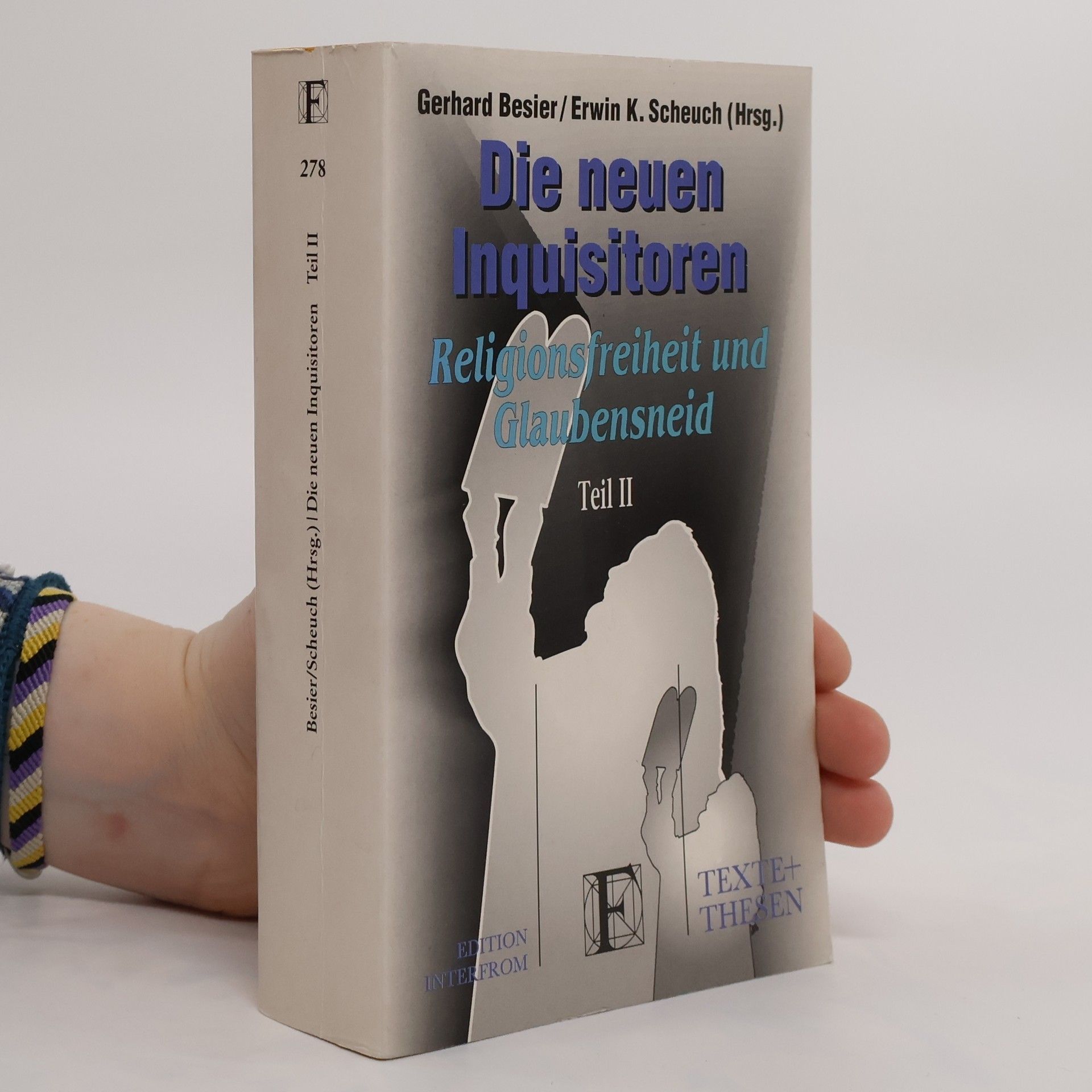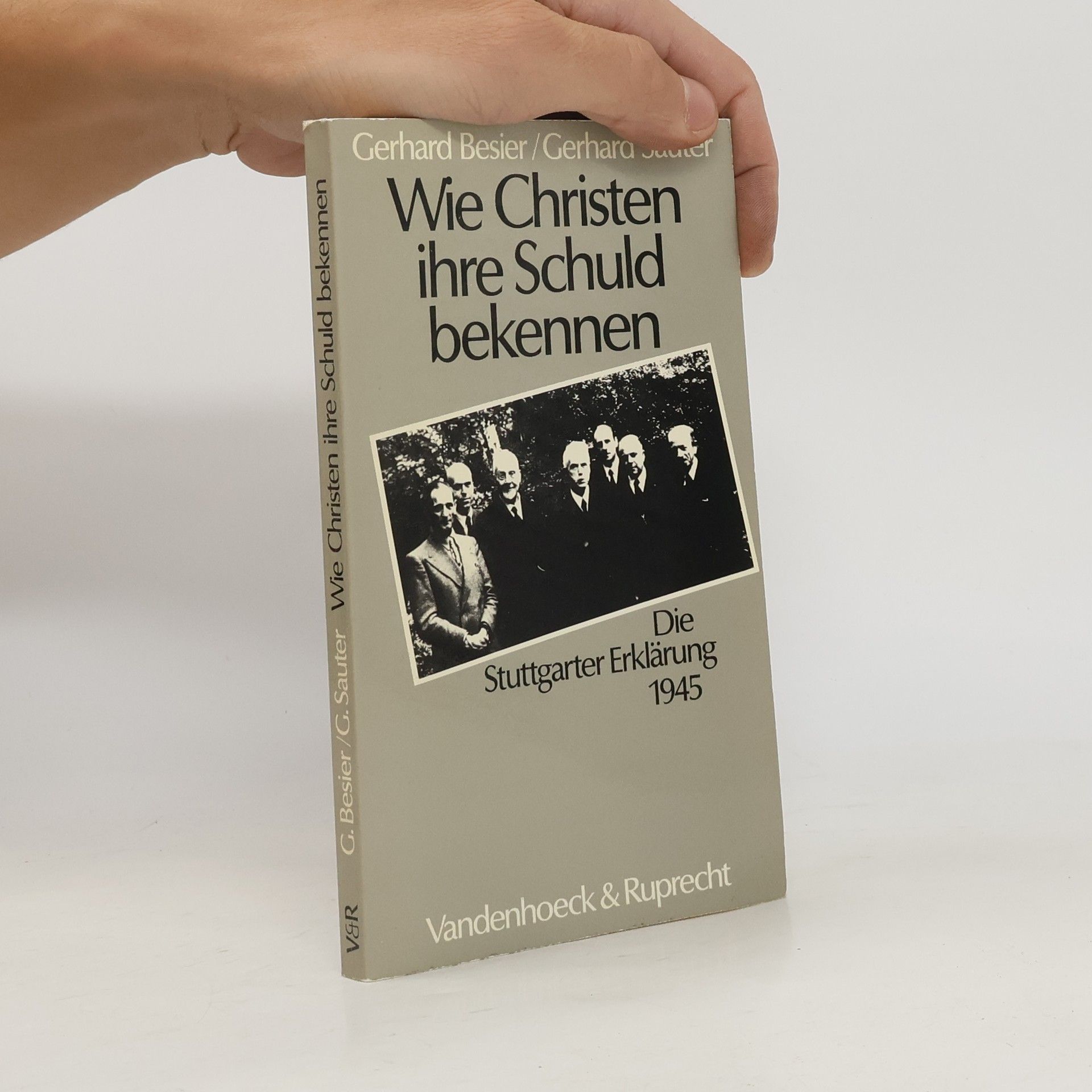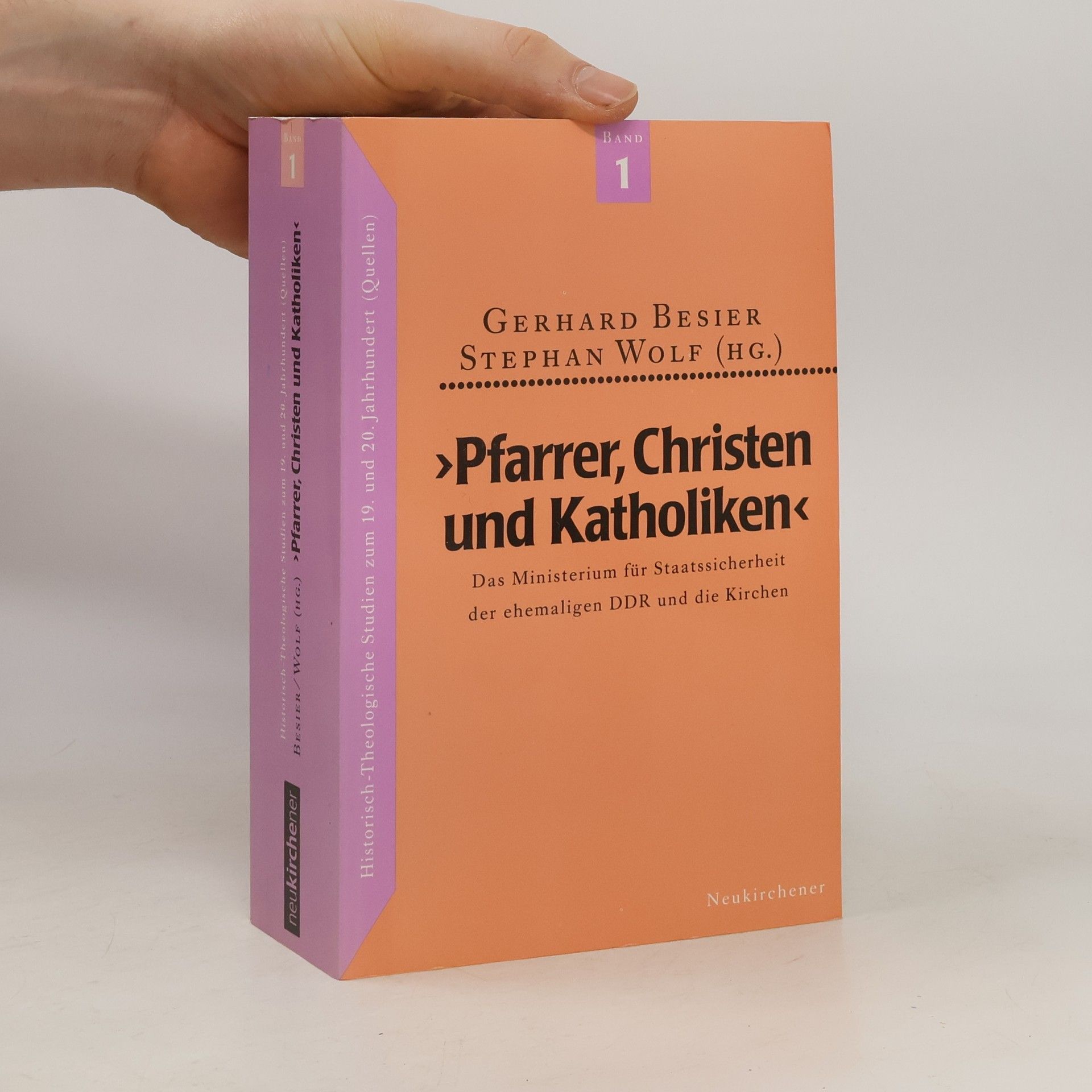Gerhard Besier Livres
30 novembre 1947







Der Autor stellt in diesem Band die Geschichte der beiden Großkirchen im „kurzen“ 20. Jahrhundert seit 1918 dar. Der Komplex „Kirche, Politik und Gesellschaft“ schließt eine Reihe epochaler Umbrüche und Zäsuren ein, etwa das Ende der protestantischen Staatskirche und des landesherrlichen Kirchenregiments nach dem Ersten Weltkrieg, die Bemühungen der Bewegung „Deutsche Christen“, eine Synthese zwischen Christentum und Nationalsozialismus zu verwirklichen, und die Stellung der Volkskirche in der DDR. Aus der Presse: „. das religiöse Gelände ist unübersichtlich. Nun wird es vermessen und ausgeleuchtet. Besier verbindet die historische Skizze der entscheidenden Entwicklungslinien mit einem kritischen Forschungsbericht.“ Die Welt vom 18.11.2000



